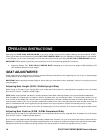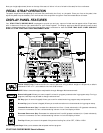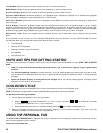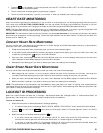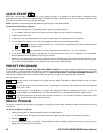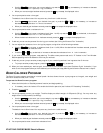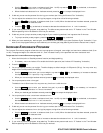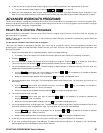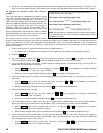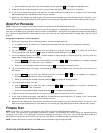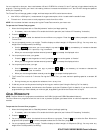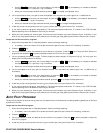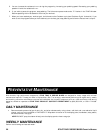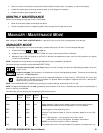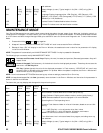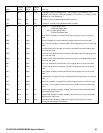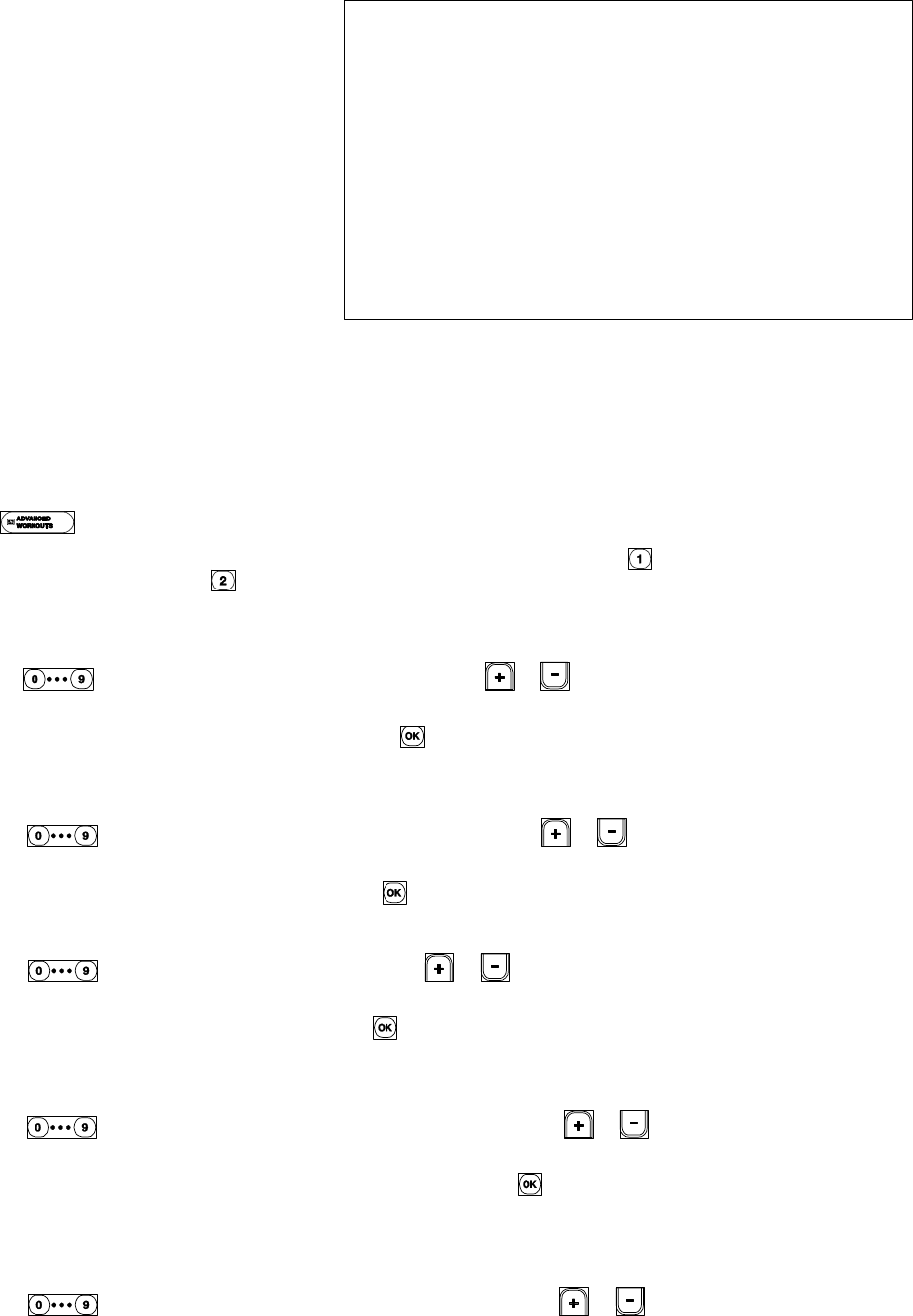
26
STAR
TRAC
S
SERIES
BIKES
O
WNER
’
S
M
ANUAL
10. When you have reached your workout goal, the bike enters the Cooldown cycle (see “Cooldown Cycle” for details). If you
wish to exit the program before you have reached your workout goal, stop pedaling and allow the Pause timer to expire.
To operate the DYNAMIC HEART RATE CONTROL
program:
This heart rate feature is designed to gradually elevate
your heart rate to the upper end of your selected training
range, then gradually decrease your heart rate to the
lower end of your selected training range by dynamically
controlling pedaling resistance. During the workout, this
cycle will repeat several times until the time goal is
complete, creating an interval training effect that is
customized to the user’s desired heart rate training range.
During program setup, there must be at least an 18 BPM
difference between the lower heart rate limit and upper
heart rate limit to ensure an interval workout.
By including interval exercise in your regular aerobic
program, greater effects are noticed. Your heart and muscles will adapt to the increases in demand by utilizing stored calories for
energy more effectively. Dynamic Heart Rate Control may potentially result in more calories expended. It will strengthen the
heart, provide stress relief and variety to a workout. This program is more effective in training the body to remove excess lactic
acid from the muscles.
1. Mount the bike (refer to “Seat Adjustments” section) and begin pedaling.
n If necessary, enter the Lockout ID to enable the bike for operation (see “Lockout ID Processing” for details).
2. Press the key.
3. You are prompted to select the desired ADVANCED WORKOUTS program. Press the key to select the HEART RATE
TRAINING programs, then press the key when prompted to select DYNAMIC HEART RATE CONTROL.
4. You are prompted to enter your weight. The bike displays a default weight of 155 pounds (70 kg). You may enter any
weight from 0 to 500 pounds (0 to 226 kg).
n Use the keys to enter your current weight; or press the or key, as necessary, to increase or decrease
the displayed weight in 1 pound (or 1 kg) increments.
n When your correct weight has been entered, press the key to accept the displayed value.
5. You are prompted to enter a time goal. The bike displays a default time of 99 minutes. You may enter any time from 1 to
99 minutes.
n Use the keys to enter your desired time goal; or press the or key, as necessary, to increase or
decrease the displayed value in 1 minute increments.
n When your desired goal has been entered, press the key to accept the displayed value.
6. You are prompted to enter your age.
n Use the keys to enter your age, or press the or key, as necessary, to increase or decrease the
displayed value in 1 year increments.
n When your correct age has been entered, press the key to accept the displayed value.
7. You are prompted to enter an upper heart rate limit. The bike displays a default upper heart rate limit that is based on
80% of your theoretical maximum heart rate (220 BPM - age). You may enter any value from 90 to 200 BPM.
n Use the keys to enter an upper heart rate limit, or press the or key, as desired, to increase or
decrease the heart rate limit in 1 BPM increments.
n When the desired upper heart rate limit has been entered, press the key to accept the displayed value.
8. You are prompted to enter a lower heart rate limit. The bike displays a default lower heart rate limit that is based on
60% of your theoretical maximum heart rate (220 BPM - age). You many enter any value from 70 BPM to 20 BPM less
than the upper heart rate limit set in step 7.
n Use the keys to enter a lower heart rate limit, or press the or key, as desired, to increase or
decrease the heart rate limit in 1 BPM increments.
To calculate your training zone, use the following formulas:
(theoretical max HR = 220 - Age)
Heart Rate Training Range Upper Level
_____________________x 0.75 = ___________________________
Your Theoretical Max Training Range Upper Limit
Heart Rate Training Range Lower Level
_____________________x 0.60 = ___________________________
Your Theoretical Max Training Range Lower Limit
NOTE: Calculating your theoretical maximum heart rate using age
is an approximation. For more information, please contact a fitness
professional or doctor.



